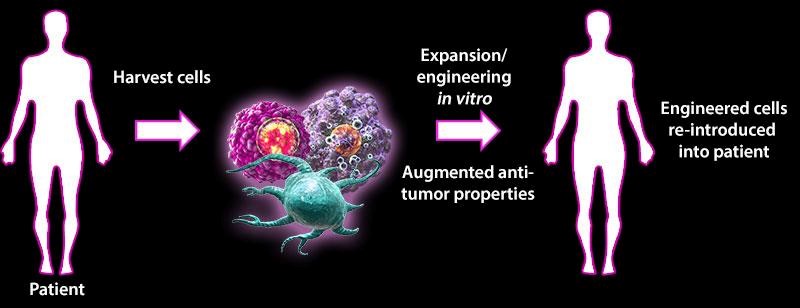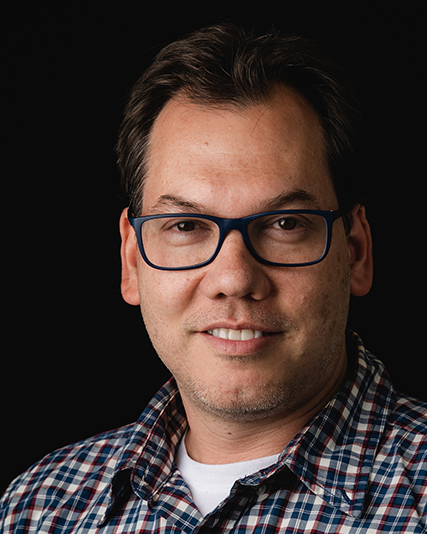Immunotherapies Perspective: Miguel Tam, Ph.D., Clinical Immunology, BioLegend
Immunotherapies are immune system-based treatments designed to fight cancer. These have shown clinical efficacy in treating various types of cancers, which has spurred both the growth of immuno-oncology research and the development of molecular therapeutics.
Cancer immunotherapies include chimeric antigen receptor (CAR) T cells engineered to recognize cancer cells, checkpoint inhibitors like anti-PD-1 and anti-CTLA-4 antibodies, cytokines like interleukins and interferons, and therapeutic vaccines that prime the immune system to attack cancer cells.

Non-stem cell transplant cell-based immunotherapy involves isolation of immune cells, in vitro expansion/manipulation to augment anti-tumor immune responses, and transfusion back into the patient.
Biocompare interviewed BioLegend’s Miguel Tam, Ph.D. on his perspective in this rapidly evolving field. Miguel Tam is the Director of Strategic Marketing. He earned his Ph.D. in Clinical Immunology from the University of Gothenburg.
This interview originally appeared on Biocompare.
 How has research in cancer immunotherapy changed in the past decade and how have the technological developments contributed to this evolution?
How has research in cancer immunotherapy changed in the past decade and how have the technological developments contributed to this evolution?
Ten years ago, there were only a few approved cancer immunotherapies while several conceptual approaches, backed by promising preclinical data, were in development. Most recently, there has been a wave of FDA-approved drugs that harness the immune system to eliminate cancer. With these approvals, and the accompanying demonstrable improvements in treatments, there has been a significant expansion in interest, investment, and research development in this field. These activities focused primarily on therapeutic modalities for soluble-based (e.g., checkpoint inhibition) and cell-based (e.g., cancer vaccines, CAR-T) immunotherapies. Technological developments, especially in genomics, have enabled researchers to interrogate increasingly complex biological questions to better understand and develop novel, personalized, immunotherapeutic approaches.
What are some of the biggest hurdles/challenges facing researchers in this field and do you think they are being adequately addressed?
Resources—Accessing the latest technologies at an affordable cost is a significant hurdle for many researchers. As technologies are refined and broadly adopted, the costs often drop dramatically. However, access to the newest and most powerful technologies continues to be expensive and consistent availability of high-quality clinical samples from relevant subsets of patients who have been treated for a given condition can be very difficult to obtain.
Knowledge Gaps—Our understanding of the tumor microenvironment and mechanisms of resistance is still at an early stage. Further research is needed to elucidate the underlying biological mechanisms driving the heterogeneity of responses to therapy seen among patients. Immunotherapeutic treatments can lead to sustained cures, but they are only effective in some patients. Fortunately, there are a high number of research studies across a broad spectrum of therapeutic approaches currently seeking to address these fundamental questions. These past successes, coupled with newly available technologies and daily advancements in knowledge of immune-signaling mechanisms, are fueling optimism that these knowledge gaps will be filled.
Are there technological solutions that are currently being developed that you are excited about?
Cell-based immunotherapy—The first ever chimeric antigen receptor-expressing T cell (CAR-T cell) immunotherapy received FDA approval in 2017. As the understanding in the field advances for this very promising therapeutic method, we anticipate more approved therapies to treat a variety of cancers and other diseases. Recent developments in the fields of proteogenomics, spatial transcriptomics, and multiplexed immunohistochemistry are exciting. These techniques will catalyze the addition of valuable new reagents and instruments to the researcher’s toolkit.
What are some of the new trends that you are seeing in this field? Will existing technology keep up with those trends?
Personalized and precision medicine—The large number of newly available immunotherapies give research clinicians a wide choice of options when fighting a particular tumor. Thus, having a better understanding of the precise disease characteristics for each patient allows the clinician to narrow the choices to those with the highest likelihood of success. This has been enabled by advances in the field of genomics, primarily driven by novel instrumentation and methods that allow rapid, in-depth sequencing of cellular transcriptomes and whole-genome sequencing. Integrating an analytical, complete, multiomics approach, which includes not just nucleic acid information but also proteins and other biologically relevant molecules, will be critical in the near future. Current technologies will need to evolve to deliver more efficient research and more effective treatments. Fortunately, we are already starting to see that evolution.
Are there gaps in current technology offerings for cancer immunotherapy? How do they relate to lack of instrumentation, technical know-how, data deluge, translational issues?
Effective analysis of big data requires computational knowledge that many primary cancer researchers do not possess. This often requires bioinformaticians with specialized knowledge and training for data analysis, who conversely may not always have best knowledge regarding the biology. Additionally, tying large amounts of data to biological relevancy and clinical significance is still a challenge. We also need to get better at translating research discoveries to the clinic, and doing so with the highest safety standards.
As a technology/service provider how are you impacting the progress in this field? What can you do more/better and what will help to make this happen?
BioLegend is a committed solutions partner for immunotherapy researchers. We provide a large number of critical high-quality reagents in our portfolio (e.g., flow cytometry and biofunctional antibodies, bioassay kits and reagents, recombinant proteins). As a focus of our mission, we continually innovate in those life sciences fields most relevant to immunotherapies and cancer. Examples of this include our introduction of the Brilliant Violet™ family of antibody-conjugates that greatly expanded the power of flow cytometry, a critical tool for immunotherapy research. We also introduced the first set of products to enable high-plex protein analysis integrated with single-cell transcriptome sequencing.
This technology is quickly becoming the standard of multiomics cell analysis, an incredibly valuable approach in cancer immunotherapy research and monitoring. We are also committed to providing all our research tools at outstanding value backed by superior customer and technical support. By lowering barriers for researchers to pursue innovations, we aim to enable researchers to make legendary discoveries.
If you could change one thing to drive progress in this field what would that be?
Access and cost. There are talented scientists in many places that could drive advancements more quickly if they had ready access to the latest technologies. Providing wide access to such cutting-edge scientific resources is critical for allowing all researchers to maximize their innovative potential and develop the novel therapies of the future.
BioLegend provides solutions for advancing all aspects of cancer research, from elucidating the basic science of tumorigenesis to the development of novel immunotherapies. Learn the roles of cytokines in combating tumor growth with highly stable recombinant proteins, and test strategies for stimulating anti-cancer immune responses in in vivo and ex vivo models with bioactive GoInVivo™ antibodies.

 Login/Register
Login/Register 






Follow Us